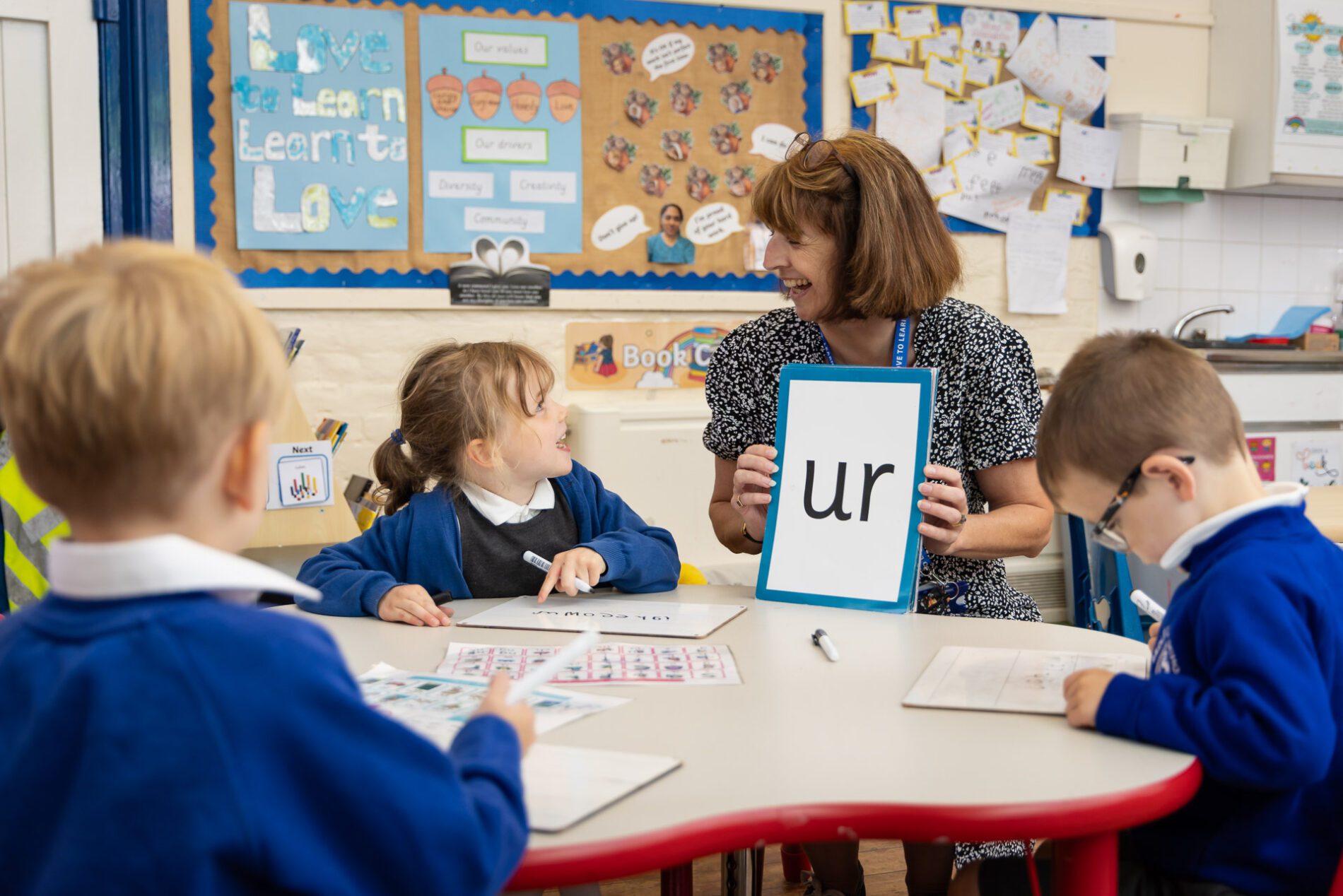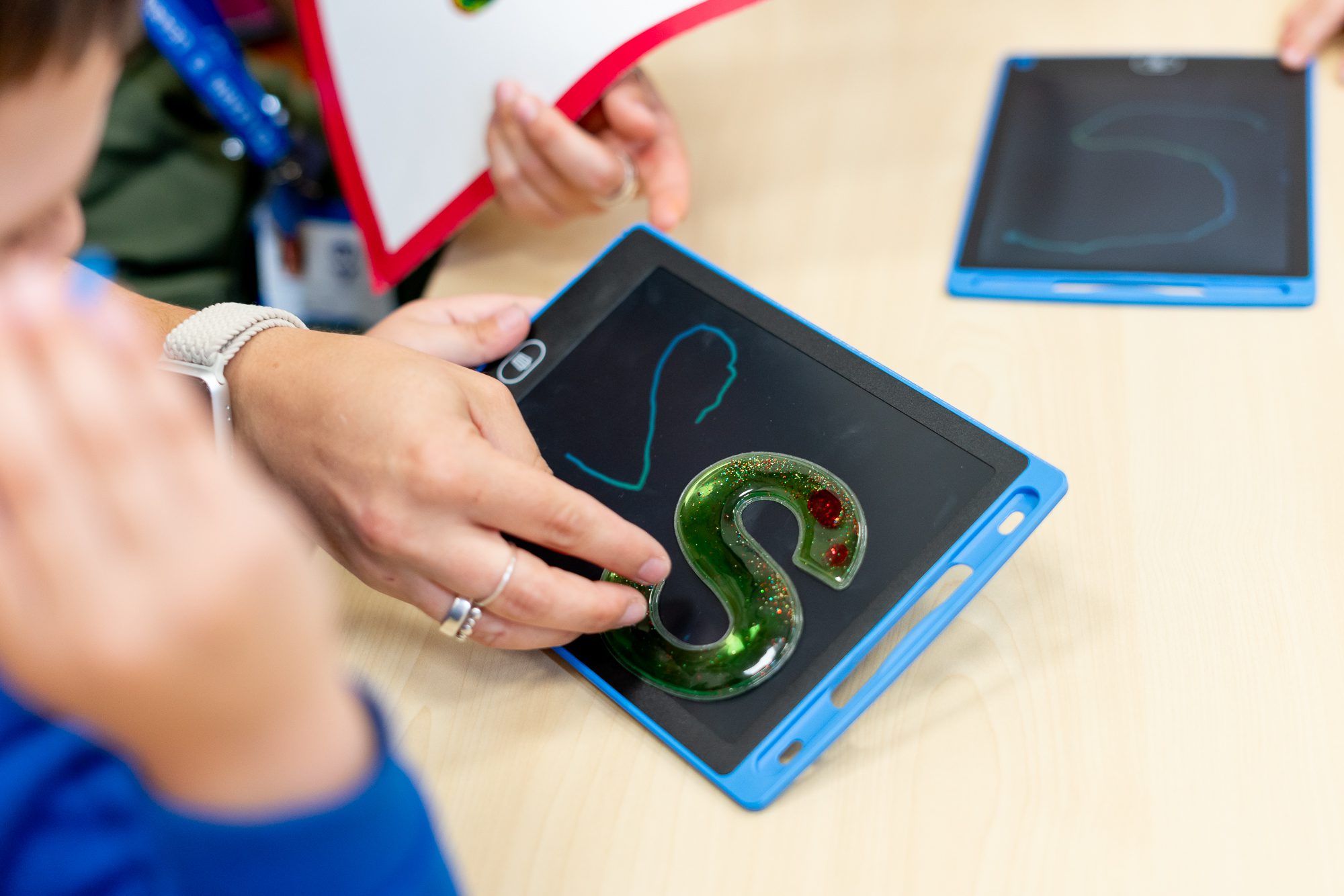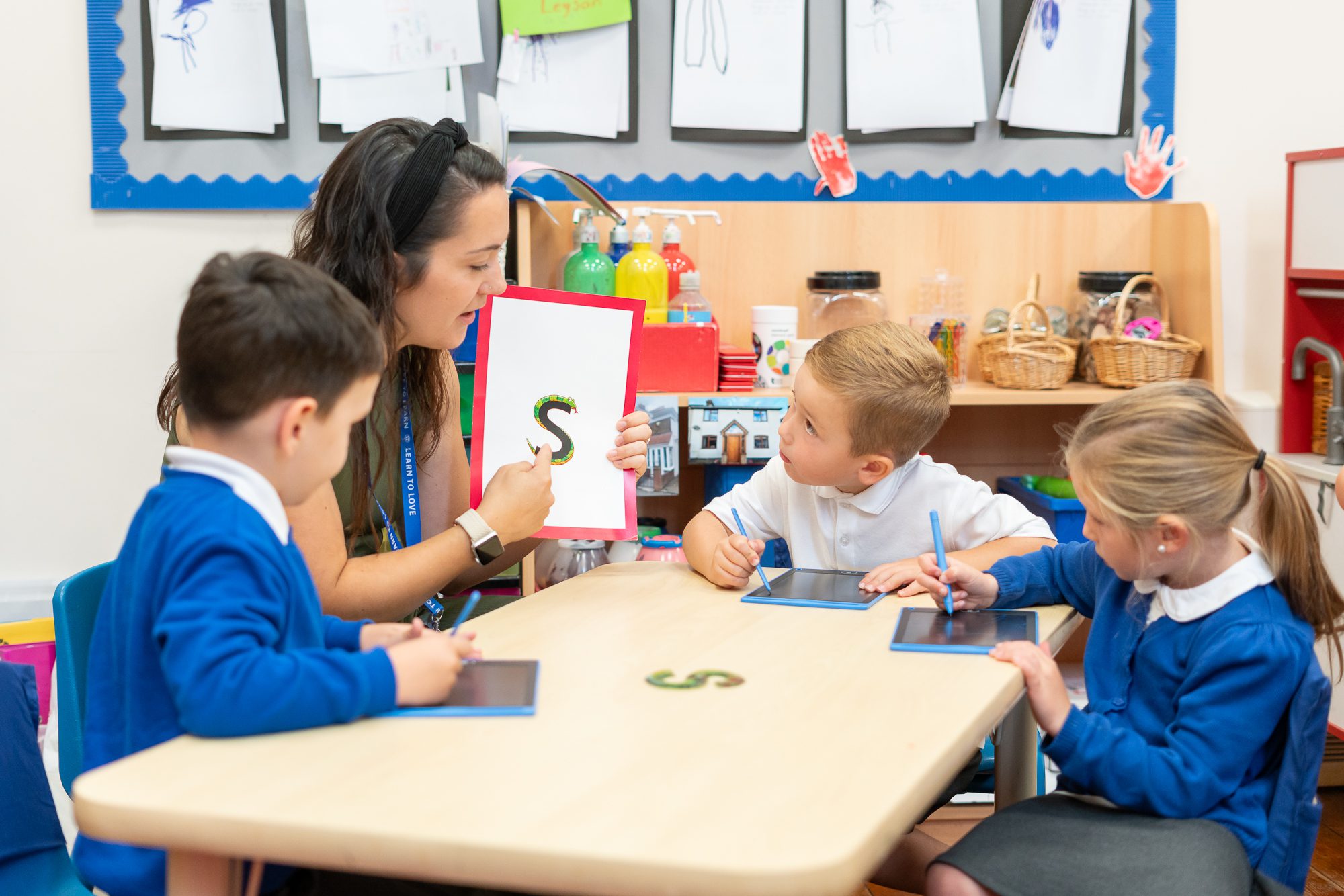Phonics Subject Leader: Mrs T Handley and Mrs S Rawlins
Phonics is a combination of skill and knowledge which aims to build children’s speaking and listening skills in their own right as well as to prepare children for learning to read by developing their phonic knowledge and skills.

Intent
At Sedley’s C.E Primary School, we follow the ‘Little Wandle Letters and Sounds Revised’ programme.
Children begin by learning the sound each individual letter makes and progress onto identifying the sound a combination of letters makes. The last, and also vital skill is to blend the phonemes (sounds) to create a word. Although fluency by the age of 7 is the aim, phonic skills are a necessity throughout a child’s school life, assisting them to discover new words and go on to read any kind of text fluently with the utmost confidence.


Implementation
In Reception and Y1, children follow the progression within Little Wandle Letters and Sounds Revised programme. Phonics is taught daily, which usually includes introducing a new grapheme or strategy, we then end the week with a review session on a Friday.
Phonics starts immediately in Reception to ensure the children make a strong start.
By the end of Reception, children will have been taught up to the end of phase 4.
By the end of Year 1, children will have been taught up to the end of phase 5.
Reception lessons start at 10 minutes, with daily additional oral blending – increasing to 30 minutes as soon as possible.
Y1 lessons are usually 30 minutes long.
In Y2-Y3, phonic lessons are taught daily to children where appropriate – following the model of Little Wandle but plugging specific gaps identified through assessment.
Any children that have been identified through assessment as falling behind are identified quickly for daily small group or individual catch up sessions to ensure that they catch up quickly.
Impact
Although fluency by the age of 7 is the aim, phonic skills are a necessity throughout a child’s school life, assisting them to discover new words, and go on to read any kind of text fluently with the utmost confidence.

Phonics in Each Stage
Phases 2, 3 and 4 are taught in Reception.
Children in Reception and Year 1 will participate in Reading Practice Sessions with a teacher. The books the children will be reading in these sessions are the Big Cat Little Wandle Books. These books will be carefully matched to the child’s current reading level. The children will read the same book three times, focusing on different reading skills in each session.
In year one, we will review phases 3 and 4. We will start to introduce phase 5.
Children in Reception and Year 1 will participate in Reading Practice Sessions with a teacher. The books the children will be reading in these sessions are the Big Cat Little Wandle Books. These books will be carefully matched to the child’s current reading level. The children will read the same book three times, focusing on different reading skills in each session.
Progression
SEND Information
Our SEND and disadvantaged pupils are given the necessary support in class to fully access the supported Phonics curriculum. Learning is adapted where necessary to support SEND/EAL pupils to give equal opportunities for all to be confident in approaching any problems faced. Interventions, support and challenges are constantly revised and adapted to ensure all children are supported in achieving learning. The above areas are robustly and continuously monitored to ensure any gaps in learning are addressed.
Phonics Assessments
Phonics Screening Check
Children in Year 1 throughout the country will all be taking part in a Statutory Phonics Screening Check in June. Children in Year 2 will also take the check if they did not achieve the required result when in Year 1 or if they have not taken the test before. The phonics screening check is designed to confirm whether individual children have learnt phonic decoding and blending skills to an appropriate standard.
What Happens During the Screening?
The test contains 40 words. Each child will sit one-to-one and read each word aloud to their teacher. The test will take approximately 10 minutes per child, although all children are different and will complete the check at their own pace. The list of words the children read is a combination of 20 real words and 20 pseudo words (nonsense words). The pseudo words will be shown to your child with a picture of an alien. This provides the children with a context for the pseudo word which is independent of any existing vocabulary they may have. Pseudo words are included because they will be new to all pupils; they do not favour children with a good vocabulary knowledge or visual memory of words. We prepare children by introducing them to ‘alien’ words throughout their daily lessons using sounds that they have learnt. The pass mark last year was 32/40.
Home Learning
Phonic books will be sent home. Teachers will put the GPC’S the children have learnt in their Phonic sessions, in their Phonic Books, for the children to take home. Regular practice of these GPC’s will support your child in their reading and writing.

